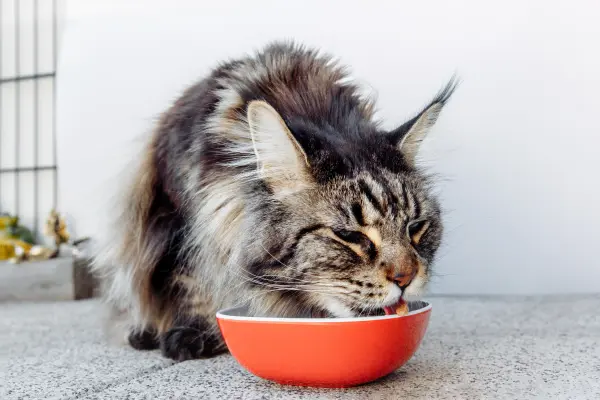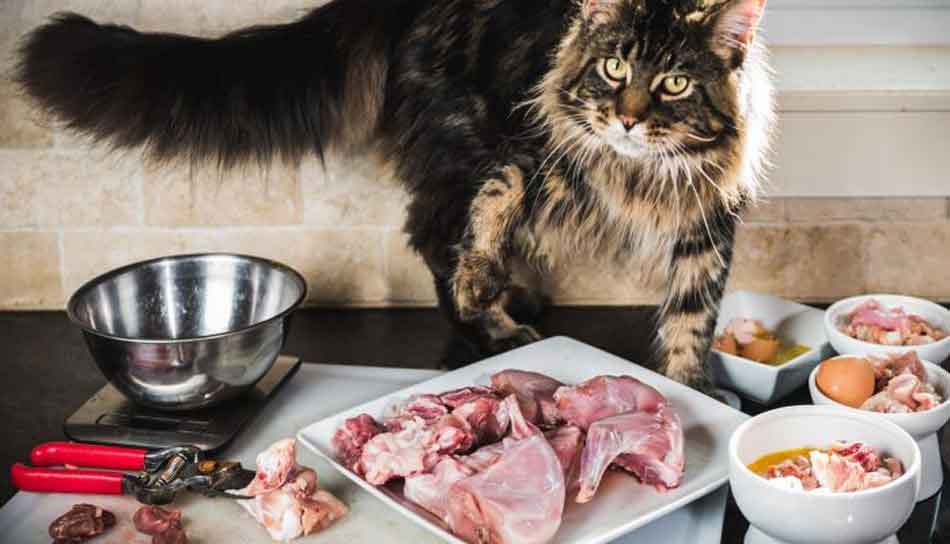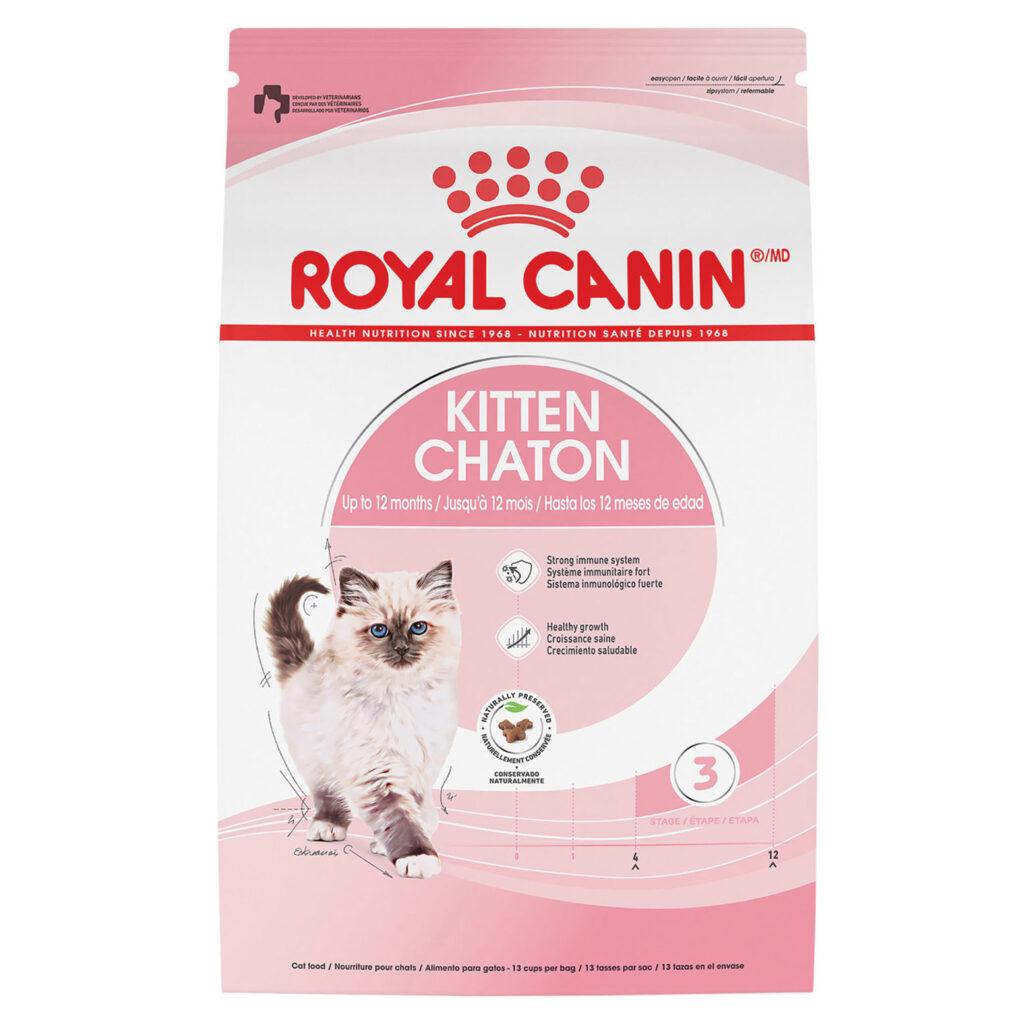Food & Diet

These large, high-energy cats need a balanced cat food, and lots of it, to keep them on their toes all day long!
- Like all cats, Maine Coon cats are obligate carnivores, so they need to eat meat. But these cats are high energy, so the best Maine Coon cat food is one that provides them with all the nutrients they need.
- Due to their size and how much energy they burn off while playing, they usually require more cat food than other breeds.
- Maine Coon cats like to drink a lot of water, so ensuring fresh, clean water is on hand at all times is essential and placed away from their food bowl.
- In general, the best diet for a Maine Coon involves a mix of wet and dry cat food that provides plenty of protein.
Maine Coon Cat Food & Diet
- Like all cats, Maine Coon cats are obligate carnivores, so they need to eat meat. But these cats are high energy, so the best Maine Coon cat food is one that provides them with all the nutrients they need.
- Due to their size and how much energy they burn off while playing, they usually require more cat food than other breeds.
- Maine Coon cats like to drink a lot of water, so ensuring fresh, clean water is on hand at all times is essential and placed away from their food bowl.
- In general, the best diet for a Maine Coon involves a mix of wet and dry cat food that provides plenty of protein.

Feeding Guide for Maine Coon Cats
Balanced Diet:
- Ensure that Maine Coon cats diet is rich in protein from high-quality sources like chicken, turkey, or fish.
- Incorporate a mix of wet and dry cat food to provide variety and adequate moisture.
Portion Control:
- Kittens: Feed small, frequent meals (3-4 times a day) to support their growth and energy needs.
- Adults: Feed 2-3 meals a day, adjusting portions based on their activity level and weight.
Monitoring Weight:
- Regularly check your Maine Coon cats weight and body condition. Adjust food portions if your Maine Coon is gaining or losing too much weight.
Hydration:
- Provide fresh, clean water at all times, ideally placed away from the food bowl to encourage drinking.
Quality Ingredients:
- Avoid cat foods with fillers, artificial colors, and preservatives. Look for high-quality, natural ingredients.
Supplements:
- Consult your veterinarian about adding supplements like Omega-3 fatty acids for coat health or glucosamine for joint support.
Treats:
- Offer treats in moderation, ensuring they don’t exceed 10% of the daily caloric intake.
Feeding Schedule:
- Maintain a consistent feeding schedule to help regulate their digestion and energy levels.
Special Dietary Needs:
- Pay attention to any food allergies or sensitivities and choose hypoallergenic or specialized diets if necessary.
Regular Vet Check-ups:
- Regular veterinary visits to monitor their overall health and nutritional needs are essentials.


